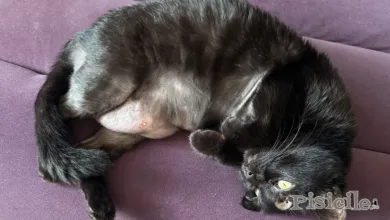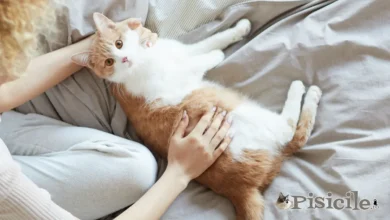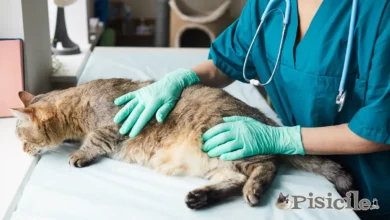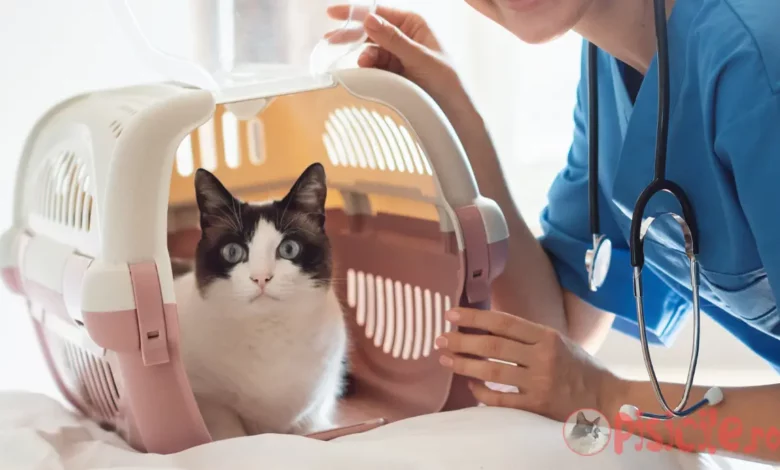
Feline immunodeficiency (FIV), popularly known as feline AIDS, is an infectious disease that severely affects the immune system of cats. Similar to AIDS in humans, FIV reduces the cat's body's ability to fight other infections and diseases. Although the diagnosis may seem daunting, effective management is possible, especially if the condition is caught in its early stages. Your cat can live a relatively normal life and reach old age if properly cared for. So, there is no reason to panic if your cat has received this diagnosis.
Subject
What is Feline Immunodeficiency (FIV)?
Feline Immunodeficiency Virus (FIV) is a pathogen that compromises cats' immune systems, leaving them vulnerable to infection and disease. In many ways, FIV is similar to HIV (Human Immunodeficiency Virus) in humans. The final stage of FIV infection is known as AIDS (Acquired Immune Deficiency Syndrome), at which point the cat suffers from multiple serious secondary infections.
FIV belongs to the category of lentiviruses, which means that it progresses slowly, having a long-lasting effect on the host body. The virus attacks immune system cells, especially T lymphocytes, gradually weakening the cat's natural defenses against pathogens.
Although a cat infected with FIV may remain asymptomatic for years, as the disease progresses, the immune system becomes increasingly weakened. This makes the animal more prone to a wide range of ailments, from respiratory and urinary infections to skin diseases and even cancer.
It is important to understand the difference between FIV infection and the AIDS stage in cats. Although both are caused by the same virus, AIDS represents the terminal phase of the disease, when the immune system is so damaged that it can no longer offer protection against infections and opportunistic diseases. However, a cat can live many years with IVF with a decent quality of life before reaching this advanced stage.
Symptoms of FIV or AIDS in cats
Recognizing early symptoms of FIV/AIDS in cats is important to ensure appropriate treatment and maintain quality of life. However, diagnosing Feline Immunodeficiency (FIV) can be difficult, as many infected cats show no obvious signs in the early stages of the disease.
Early symptoms of FIV or AIDS in cats can include:
- Moderate fever,
- Loss of appetite,
- Lethargy or general apathy.
It is important to note that these manifestations can be associated with a variety of other conditions, not just IVF / AIDS, which emphasizes the need for an accurate diagnosis by the veterinarian.
As the disease progresses, symptoms become more severe and varied, and cats may experience other symptoms, such as:
- Unjustified weight loss,
- Severe dental problems (such as gingivitis or chronic stomatitis),
- Frequent skin infections,
- Recurrent respiratory or urinary disorders,
- Other secondary diseases caused by the weakening of the immune system, including the increased risk of cancer.
However, if your cat has been diagnosed with this disease, there is no need to panic. Although IVF / AIDS is a serious disease, it should not be considered a final doom. With proper care, a balanced diet, and regular veterinary monitoring, many cats diagnosed with FIV can live for years, leading relatively healthy and happy lives. There are many cases where cats have reached old age even though they have been diagnosed with FIV for several years.
Diagnosing Feline Immunodeficiency (FIV)
The diagnosis for feline immunodeficiency (FIV) or AIDS in cats is carried out by specific laboratory tests, which detect the presence of the virus or antibodies produced by the body. The most commonly used test is ELISA (Enzyme-Linked Immunosorbent Assay), which identifies FIV antibodies in blood plasma. Although quick and affordable, this test may require confirmation in case of unclear results.
Another important test isWestern Blot, considered the reference standard for FIV diagnosis. This test is more specific and sensitive than ELISA and is used to confirm positive or uncertain results. In more complex situations, such as in the case of inconclusive symptoms, the veterinarian may recommendlymph node biopsyor abone marrowfor a more detailed assessment.
The challenges of test interpretation
The interpretation of the results is important because there is the possibility of false positive or false negative results:
- False positives: can occur in cats that have been vaccinated against FIV, because the vaccine stimulates the production of antibodies similar to those detected by the tests.
- Fals negative: occur in recently infected cats, whose immune system has not yet had time to produce enough detectable antibodies.
In such cases, it is recommended to repeat the test after a period of about 6-8 weeks to confirm the diagnosis.
The importance of early diagnosis
Early detection of FIV is crucial because it allows prompt measures to be taken to care for the cat and prevent severe complications. The earlier the disease is identified, the greater the chances of maintaining a high quality of life. An early diagnosis can help:
- Creating a personalized care plan.
- Careful monitoring of the cat's health to promptly detect and treat secondary infections.
- Educating owners about disease prevention and management measures.
So a correct and timely diagnosis makes the difference between a difficult and a more manageable life for cats affected by FIV.
Treatment for FIV / AIDS in cats
Treatment for FIV / AIDS in cats is not aimed at curing the disease, but at managing symptoms and improving the animal's quality of life. Since there is no specific treatment to eliminate the virus, treatment options focus on supporting the cat's overall health and preventing complications.
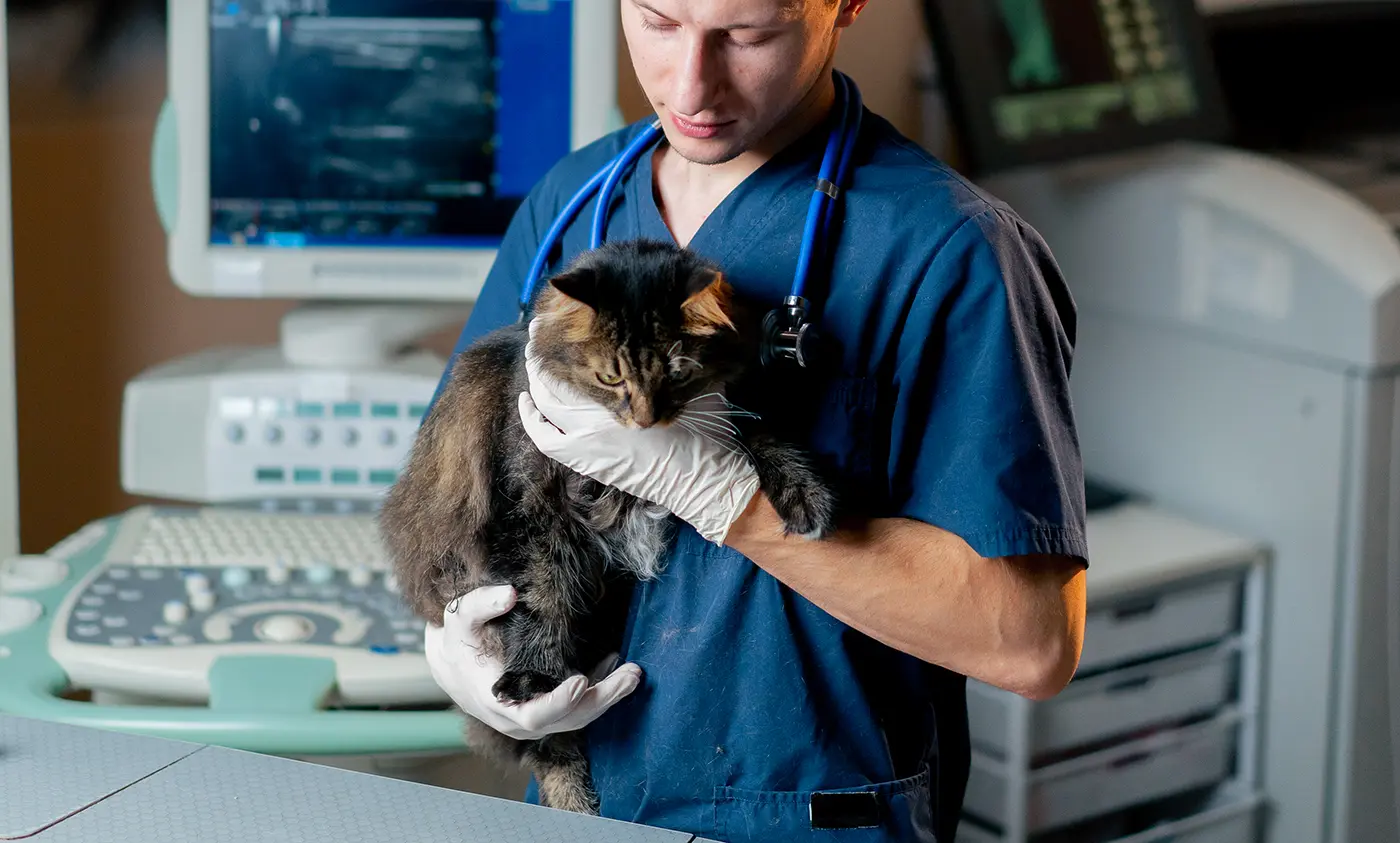
Treatment for feline immunodeficiency (FIV) may include:
- Antiviral drugs to slow the progression of the disease,
- Antibiotics to treat secondary infections that occur due to a weakened immune system,
- Medicines to control pain or to stimulate the appetite,
- Nutritional supplements that support the immune system and help the cat cope with the disease more easily.
Home care
An important component in the management of IVF is proper care of the cat at home. Given that FIV weakens the cat's immune system, it is recommended that she be kept indoors to prevent contact with other animals and reduce the risk of further infections. A balanced diet and careful monitoring of any changes in behavior or health are also fundamental to ensuring the best possible life for the cat.
Feline Immunodeficiency (FIV) Vaccination
Although vaccination can help prevent the spread of the FIV virus, it is important to note that the vaccine is not 100% effective and cannot cure an already infected cat. This vaccine is currently only available in the United States and is not commonly used in other parts of the world. Veterinary clinics in Europe or other parts of the world can still bring this vaccine on request, but it is quite expensive. The vaccine also does not prevent other infections or complications associated with FIV.
The decision on euthanasia
This is definitely the hardest decision a pet owner has to make. In cases where the disease has advanced significantly and the cat's quality of life has deteriorated considerably, euthanasia may become an option. This difficult decision will only be made together with the veterinarian, who will assess the cat's general condition and discuss the available treatment options so that the owner can make the best choice in the best interest of the animal.
So treatment for feline immunodeficiency virus (FIV) does not guarantee a complete cure, but with proper management, infected cats can live relatively healthy and happy lives for many years.
Caring for cats with feline immunodeficiency (FIV)
Care of the cat with FIV / AIDS involves careful management of the health status and continuous monitoring of possible complications. The first step is to provide a protected environment for the infected cat. Because FIV weakens the immune system, it is important that the cat is kept indoors to minimize the risk of contact with other animals or exposure to pathogens that could worsen its condition. It is also important that the cat is not exposed to stress, as it can negatively influence immunity and contribute to the progression of the disease.
A balanced diet adapted to the cat's specific needs is also very important. Cats with FIV may need high-quality food rich in protein and essential nutrients to support the optimal functioning of their weakened immune systems. Nutritional supplements may also be recommended to support general health, especially if the cat has difficulty maintaining weight or eating due to lack of appetite.
Feline immunodeficiency (FIV) or AIDS in cats also requires careful monitoring of behavior and health status for the rapid detection of possible infections or other complications. Cats with FIV are more susceptible to skin, respiratory or urinary tract infections, so it is important to intervene promptly for symptoms such as fever, loss of appetite or lethargy. Periodic visits to the veterinarian are necessary to assess the general condition, adjust the treatment and prevent other health problems. Thus, with proper care, cats infected with FIV can live relatively normal and comfortable lives, even in the long term.
How FIV / AIDS is transmitted in cats
FIV (Feline Immunodeficiency Virus) or AIDS in cats is mainly transmitted through direct contact with the blood of the infected cat. The most common ways of transmission are:
1. The deep bites– Most commonly, FIV is transmitted through deep bites, usually in fights between cats, especially between unneutered cats or those living in crowded street or shelter environments. Bites can break the skin and expose blood, which allows the virus to be transferred.
2. Contact with blood– In rarer cases, FIV can be transmitted through contact with the blood of an infected cat, such as through a blood transfusion from a sick cat or by sharing the same utensils that may be contaminated.
3. Transmission from mother to offspring– IVF can also be transmittedfrom mother cat to kittens, especially during childbirth or breastfeeding, although this is less common.
Although IVF is less commonly transmitted throughdaily contact, such as by hugging or sharing the same litters, it is still safer toisolate infected catsof others, to prevent possible risks.
What is not a route of IVF transmission
IVF is not transmitted through normal contact (touch, breast milk or saliva) in milder conditions or by using the same toy or bedding, unless blood is involved. Also, there is no evidence that FIV can be transmitted to humans or other animal species.
Also read: What is FeLV (feline leukemia virus) and what are the symptoms
Conclusion
Feline immunodeficiency virus (FIV), also known as feline AIDS, is a serious viral disease that affects cats' immune systems, making them more vulnerable to infections and other ailments. Although there is no curative treatment for FIV, with proper management and constant care, infected cats can live relatively healthy and comfortable lives for many years. Early diagnosis, health monitoring, a balanced diet, appropriate medication and a clean and protected environment are essential in the care of cats with FIV.
FIV transmission is mainly through deep bites and direct contact with blood, and measures to prevent the spread of the virus are very important. Despite the seriousness of the disease, it is important to understand that FIV is not a final doom, and with proper treatment and care, cats can live long and happy lives. Preventing the spread of FIV and educating cat owners are important steps in protecting the health of cats, and every case of FIV should be treated with compassion and responsibility.
Recommended specialist source: Feline Immunodeficiency Virus (FIV) (Cornell University College of Veterinary Medicine).
